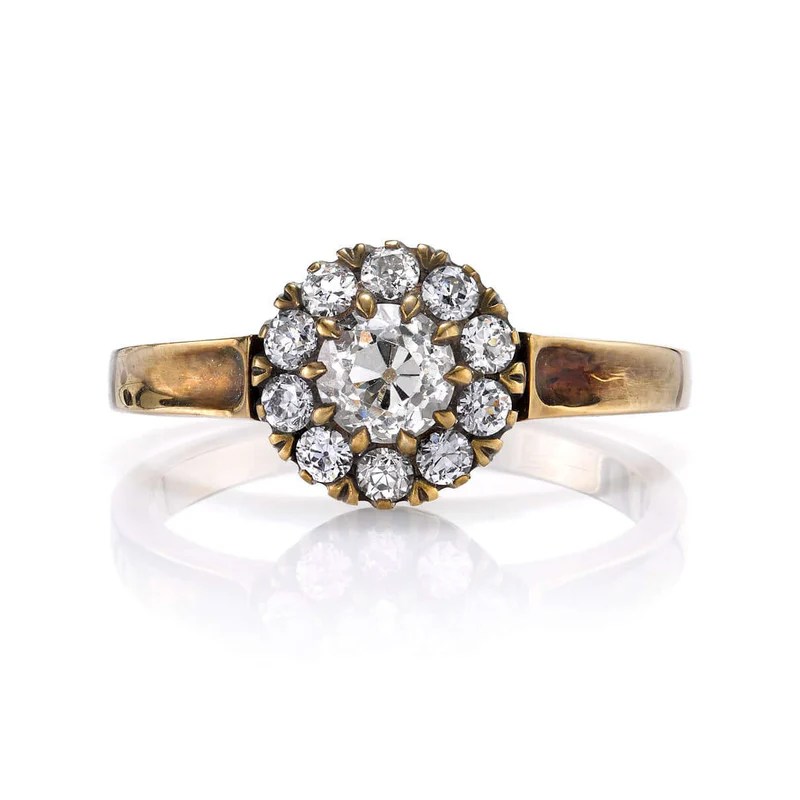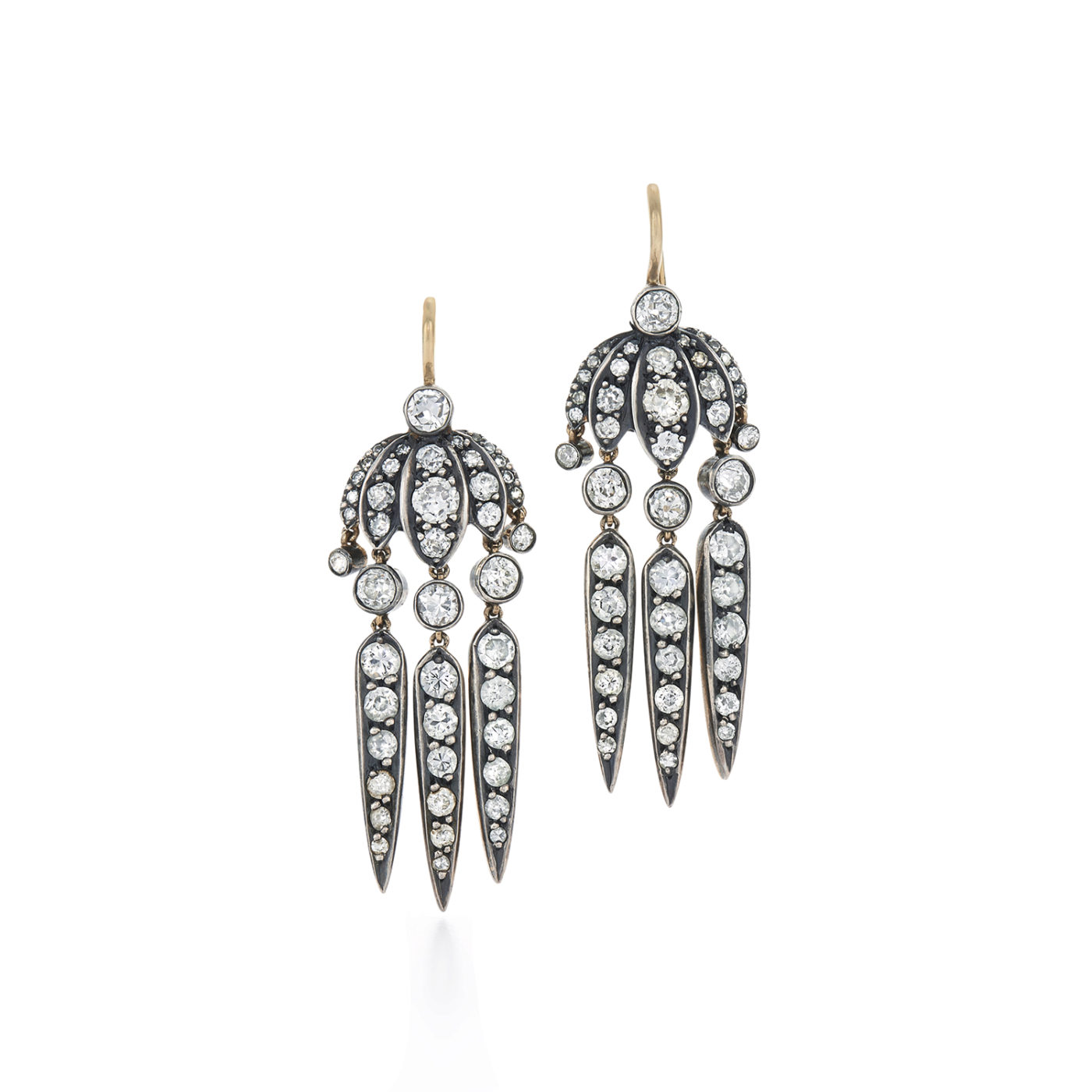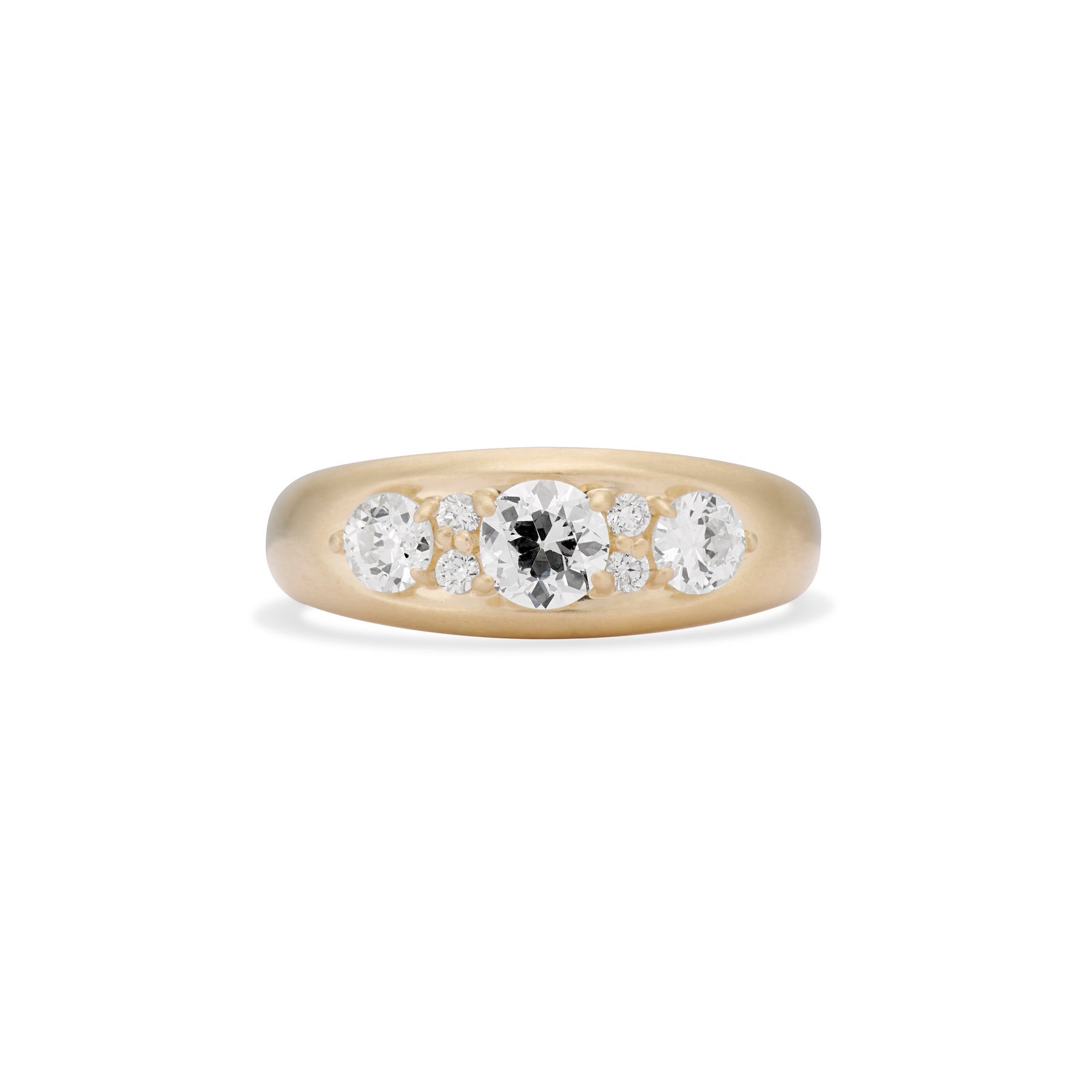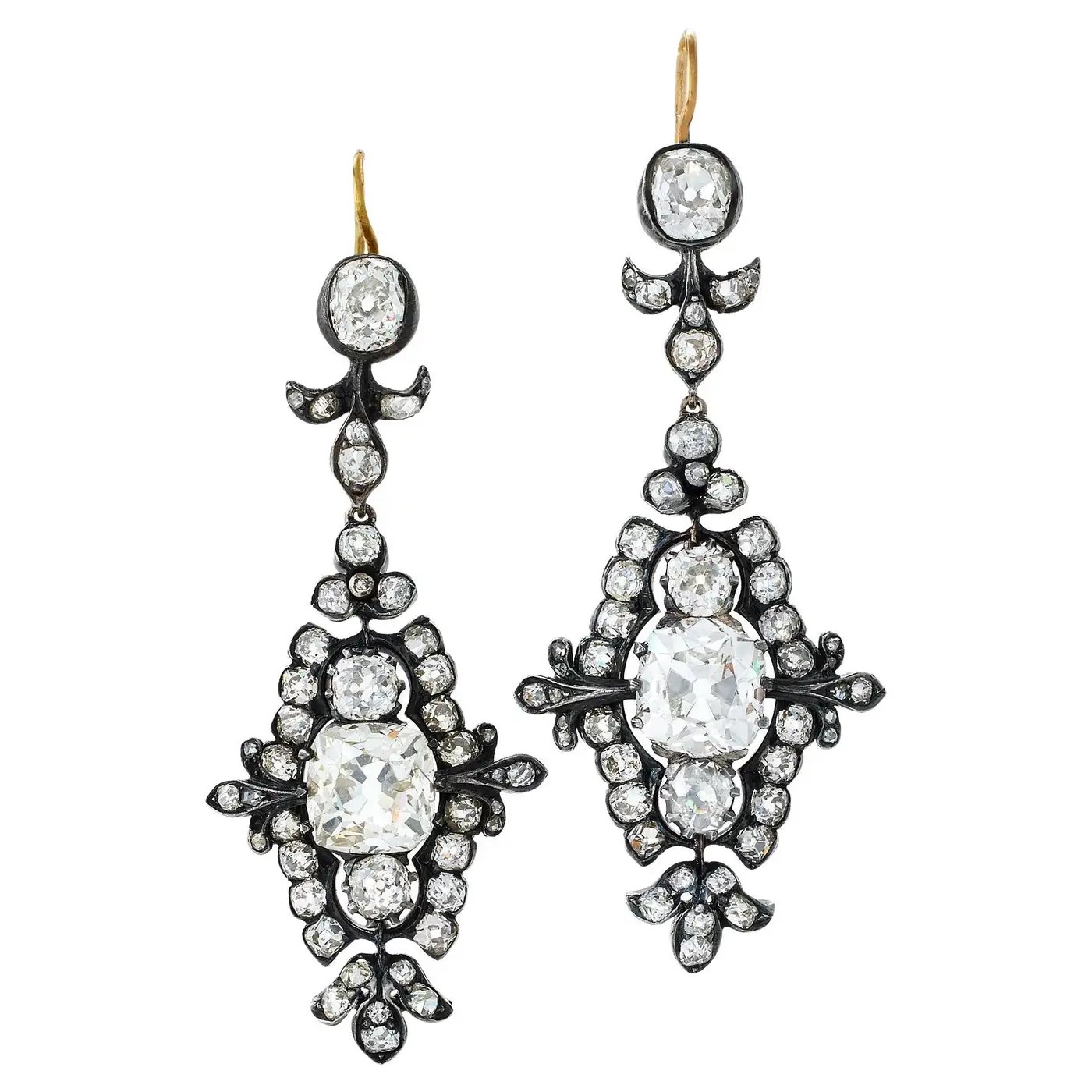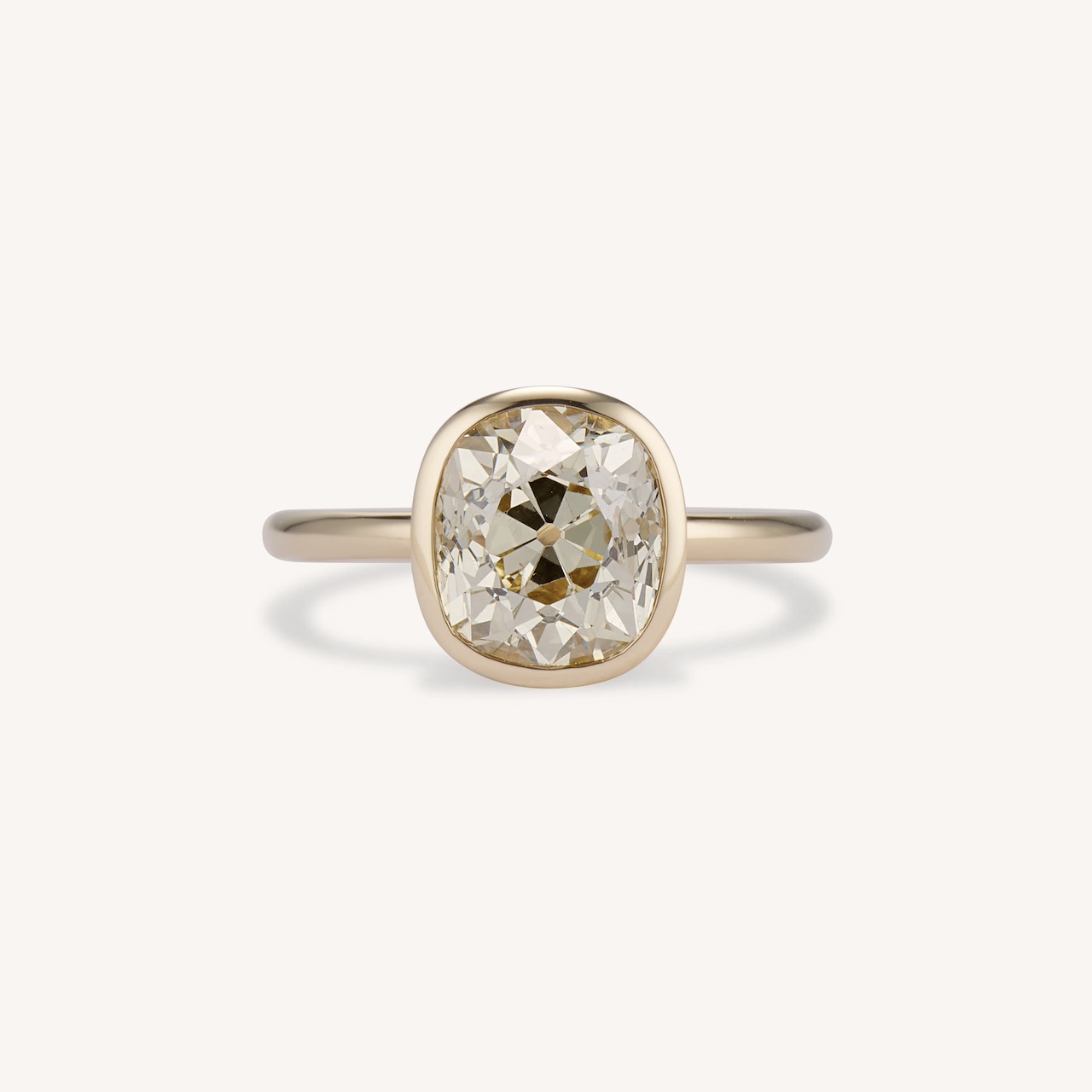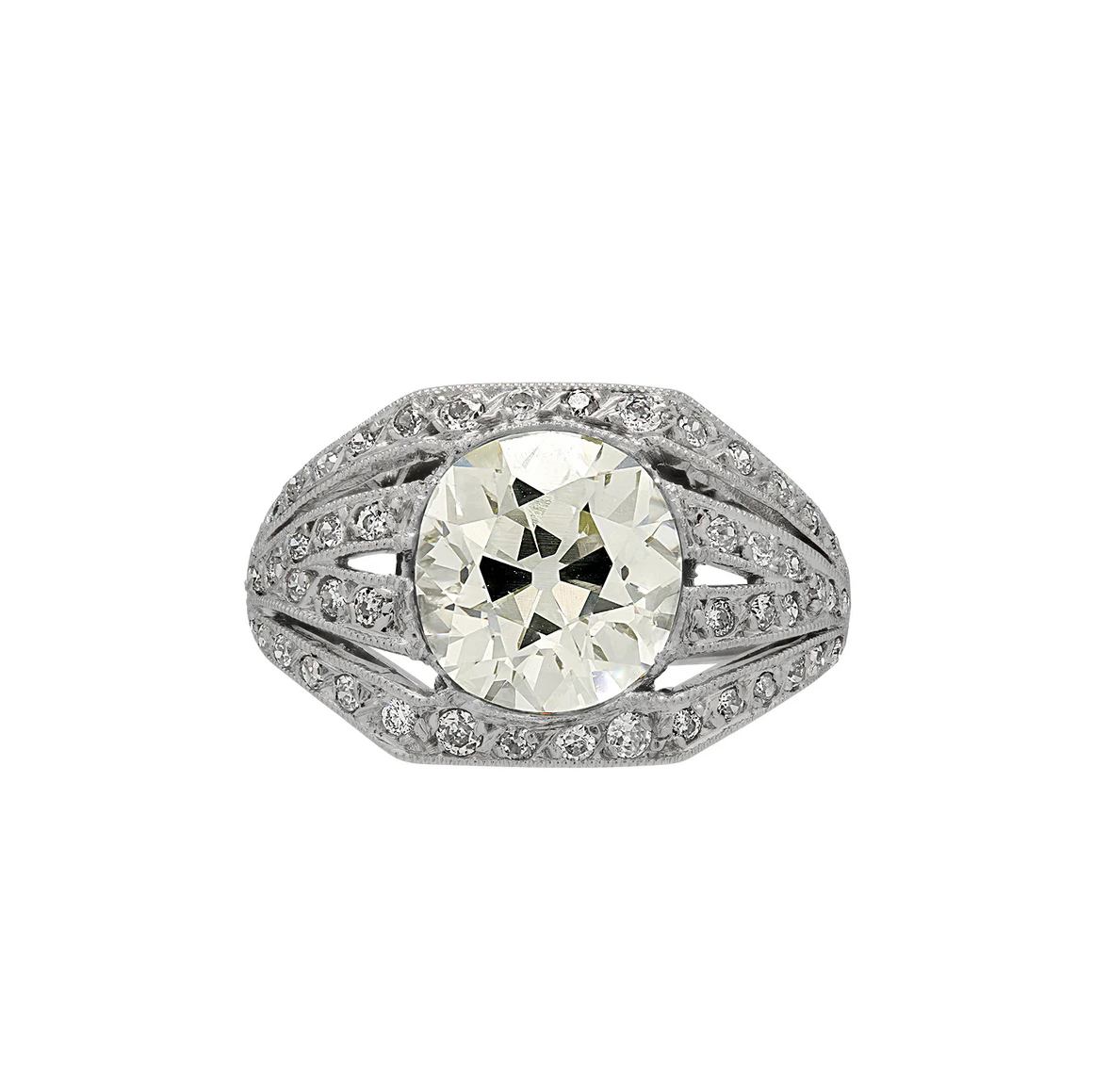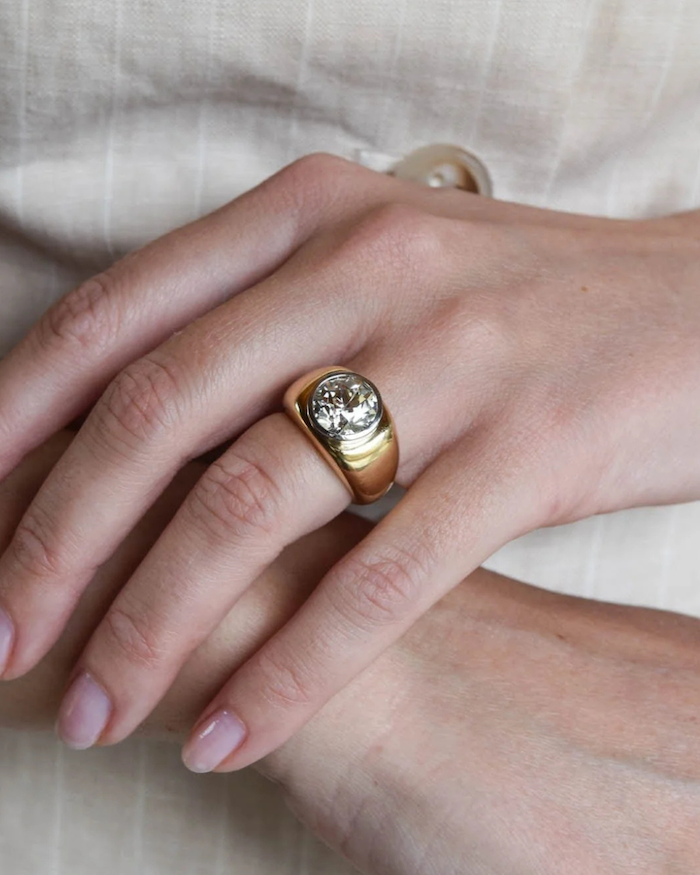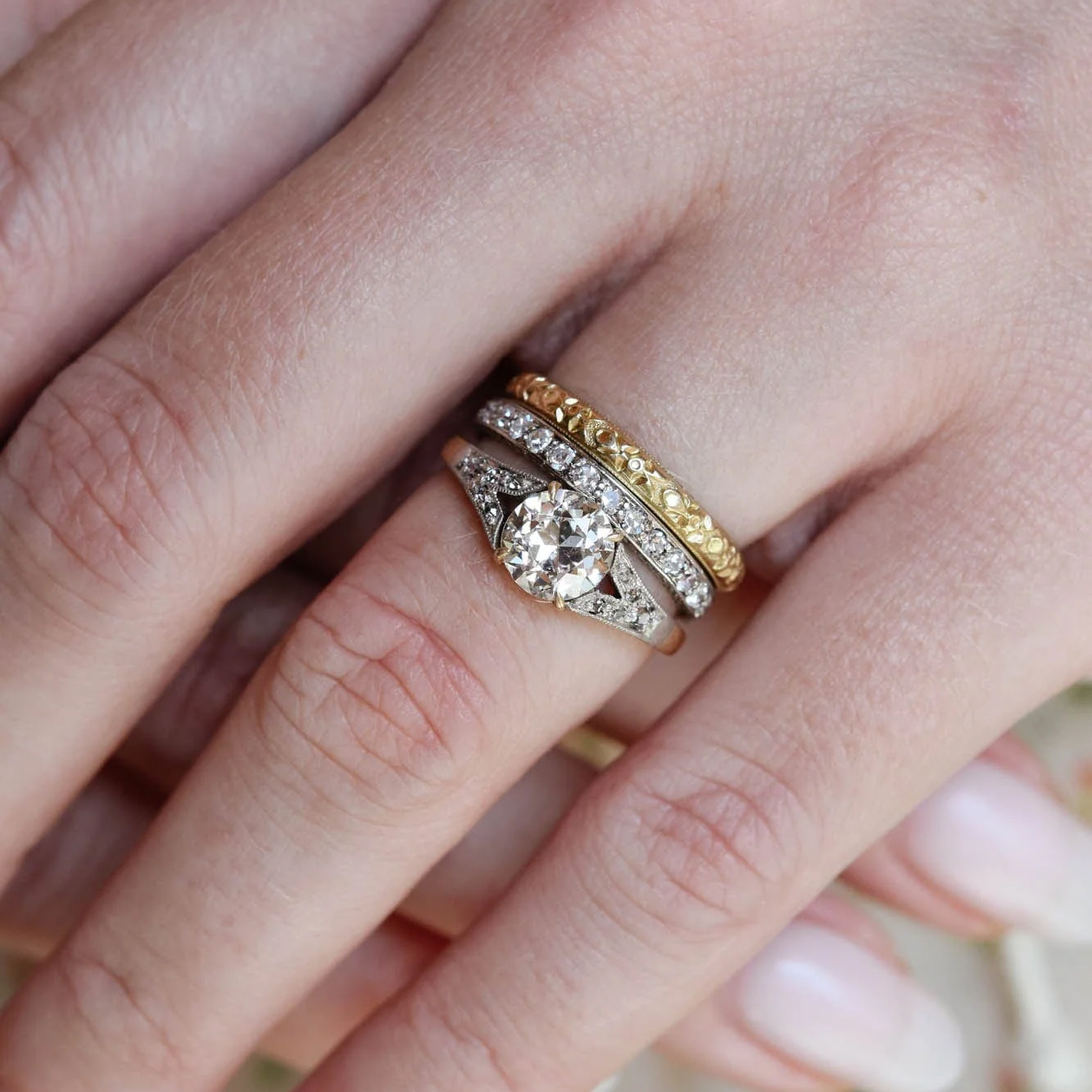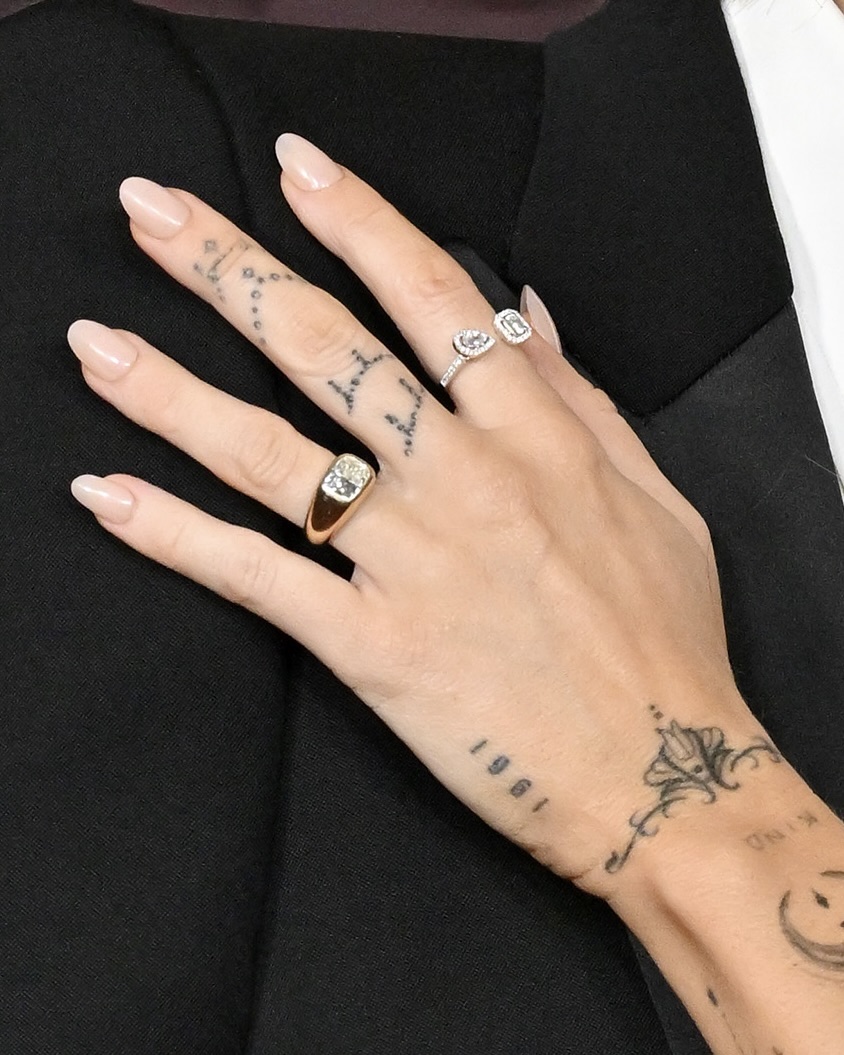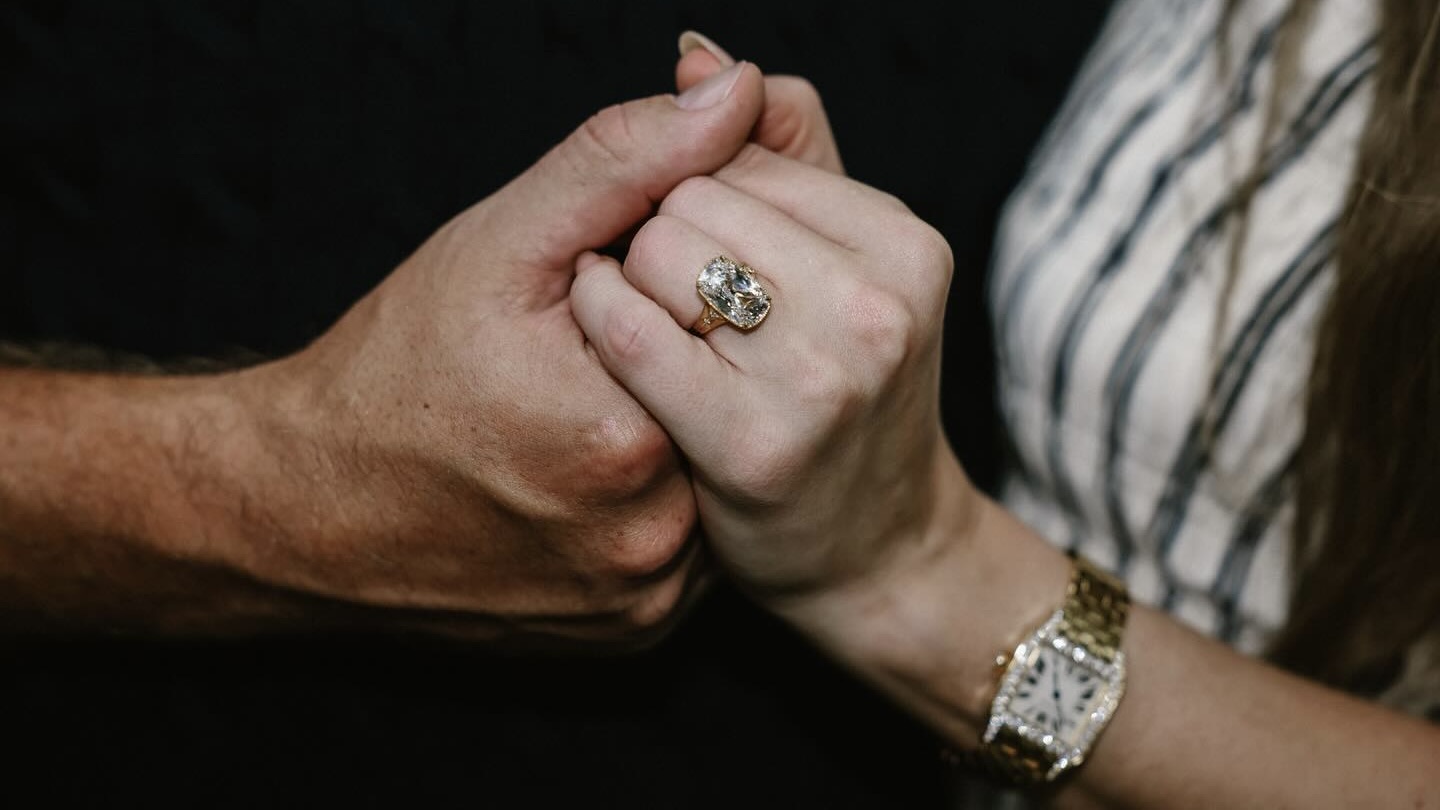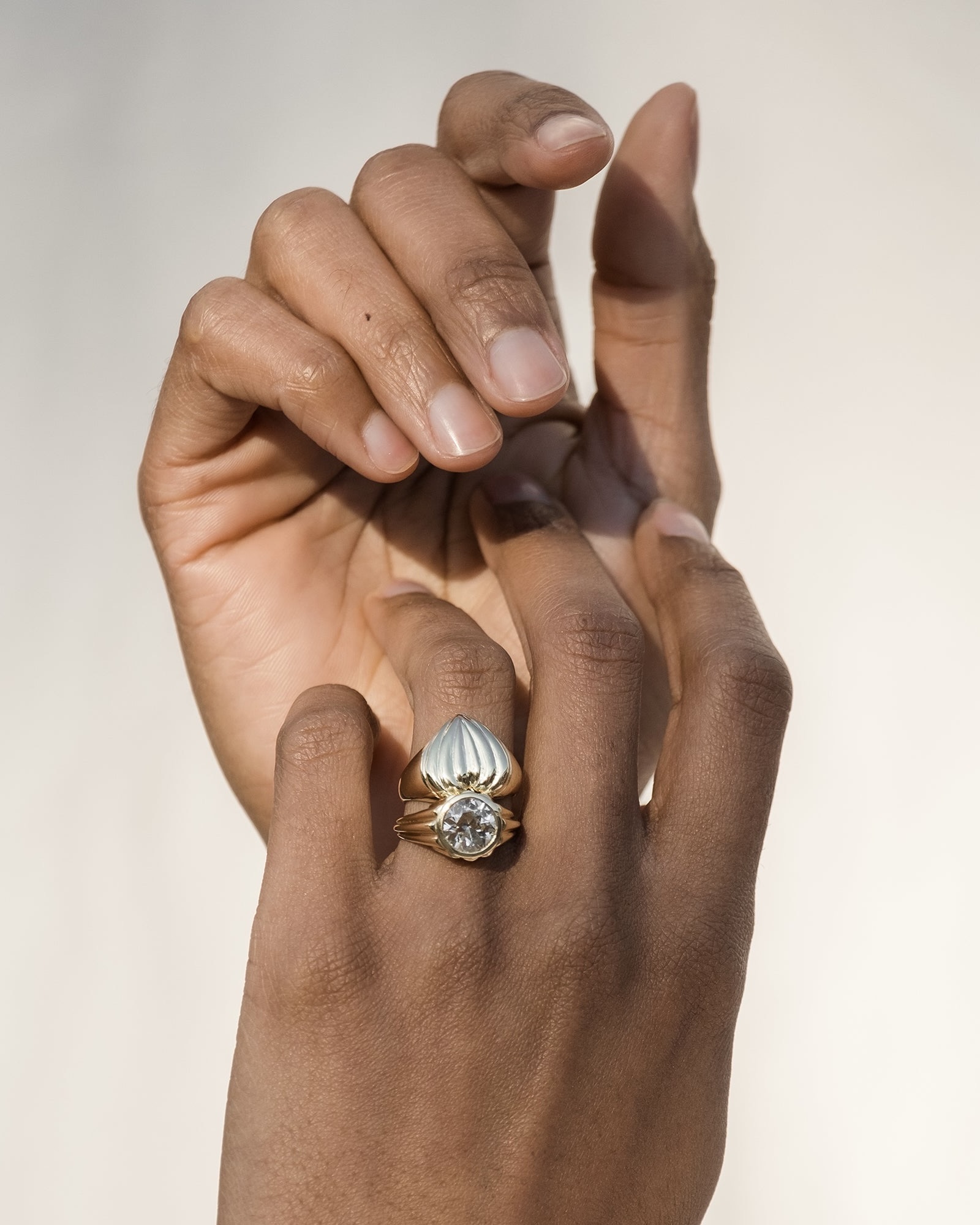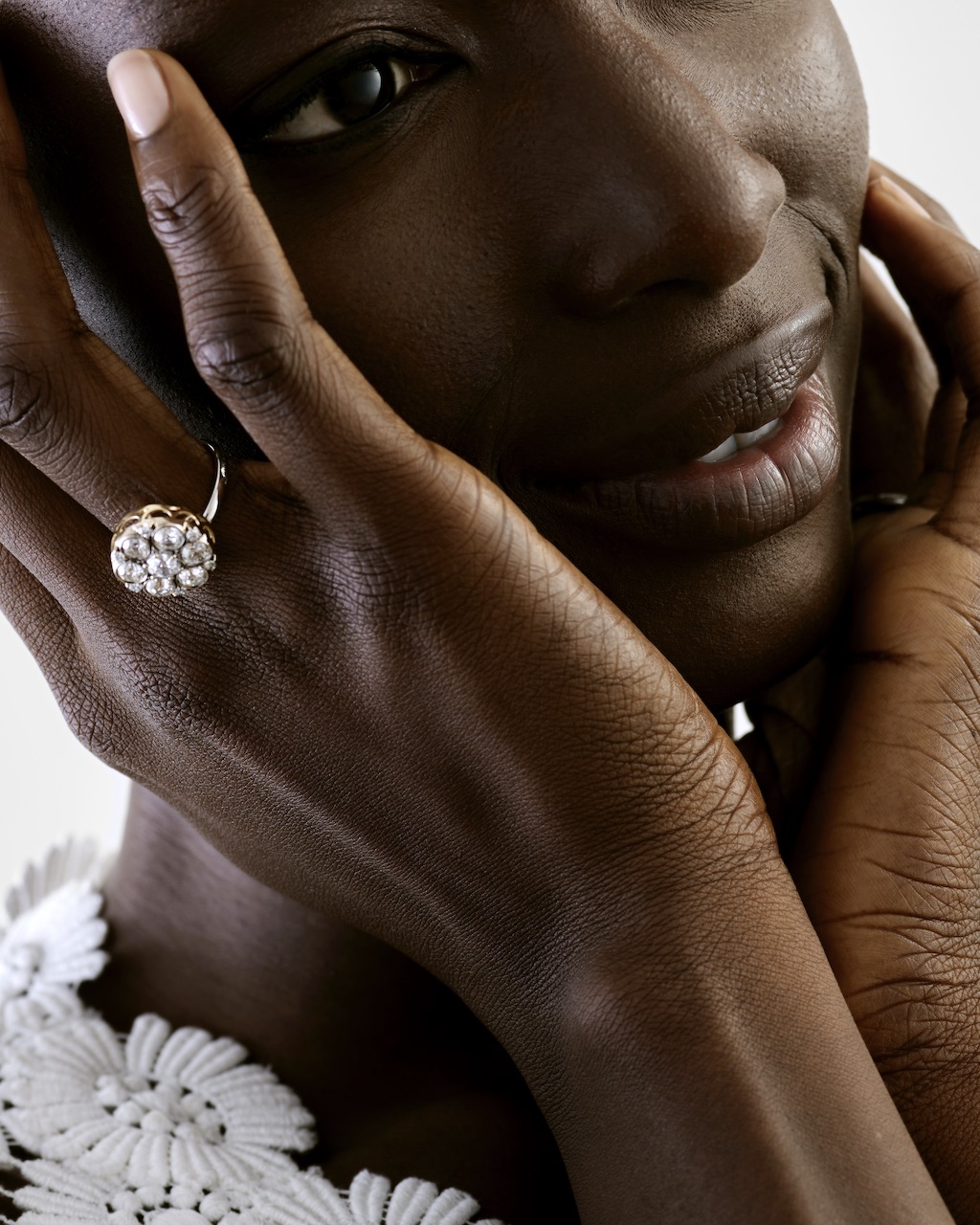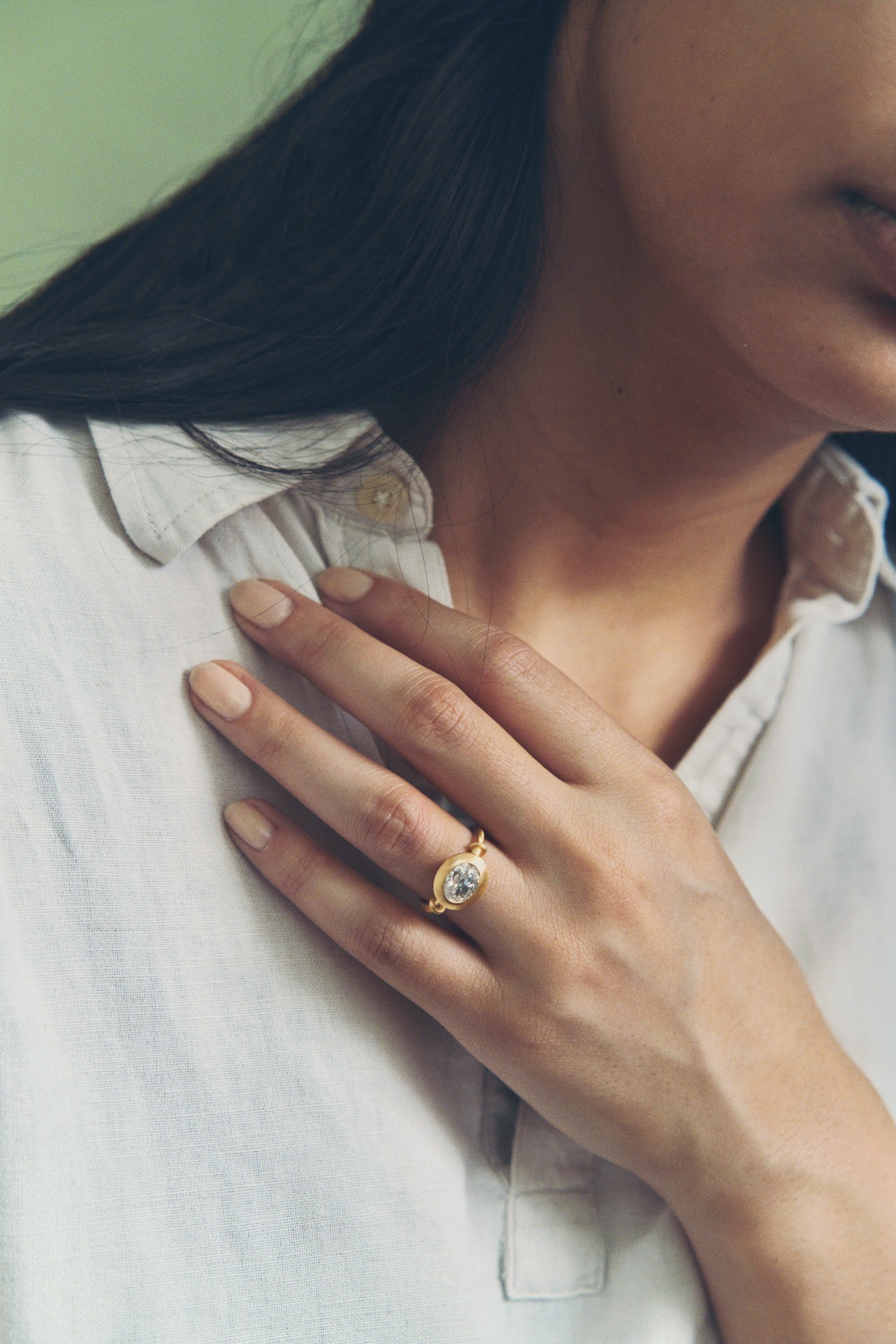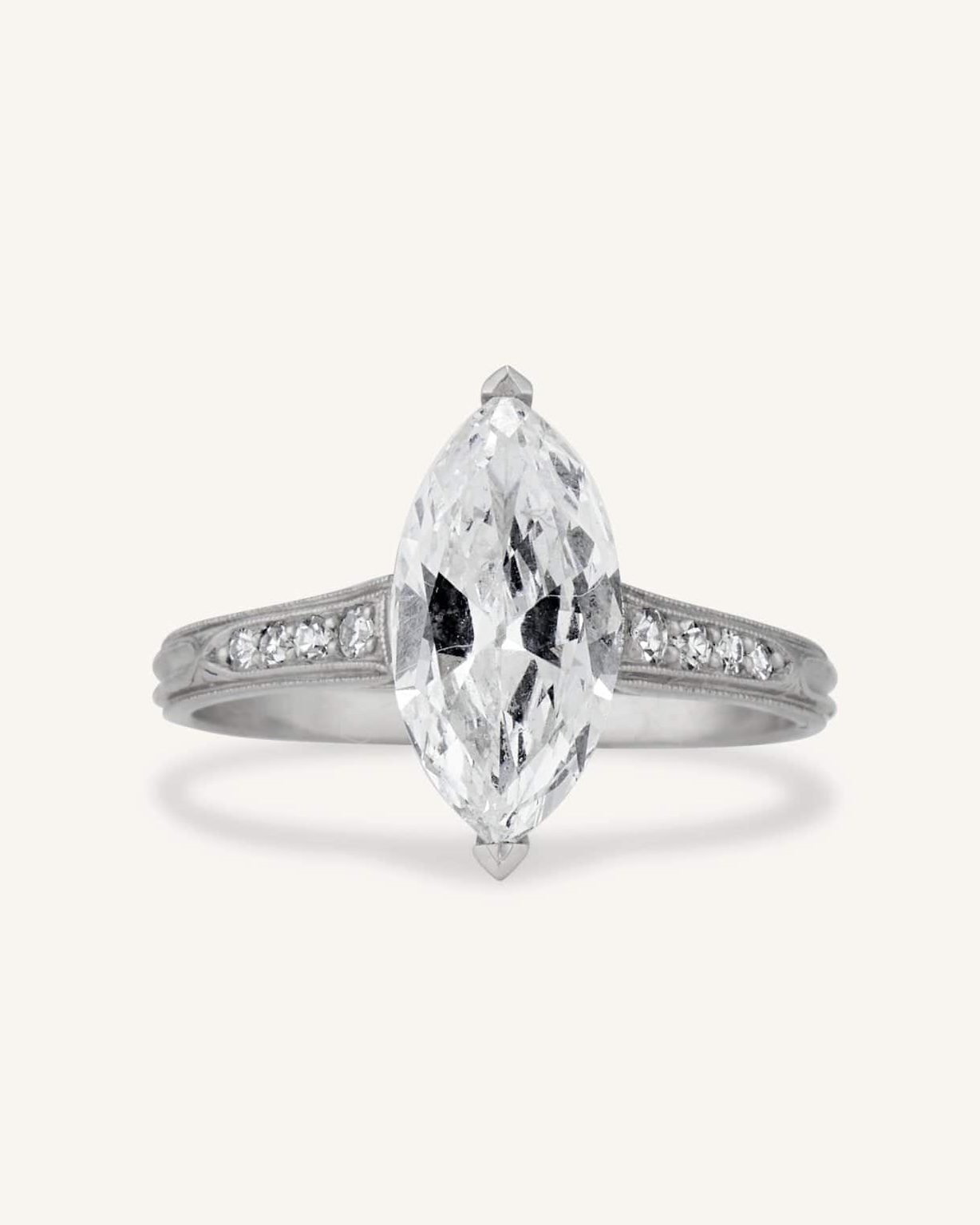< Engagement Rings & Weddings / Guides
The Old Mine Cut Diamond Is Back and More Coveted Than Ever
Discover the beauty of one of the original modern cut diamonds.
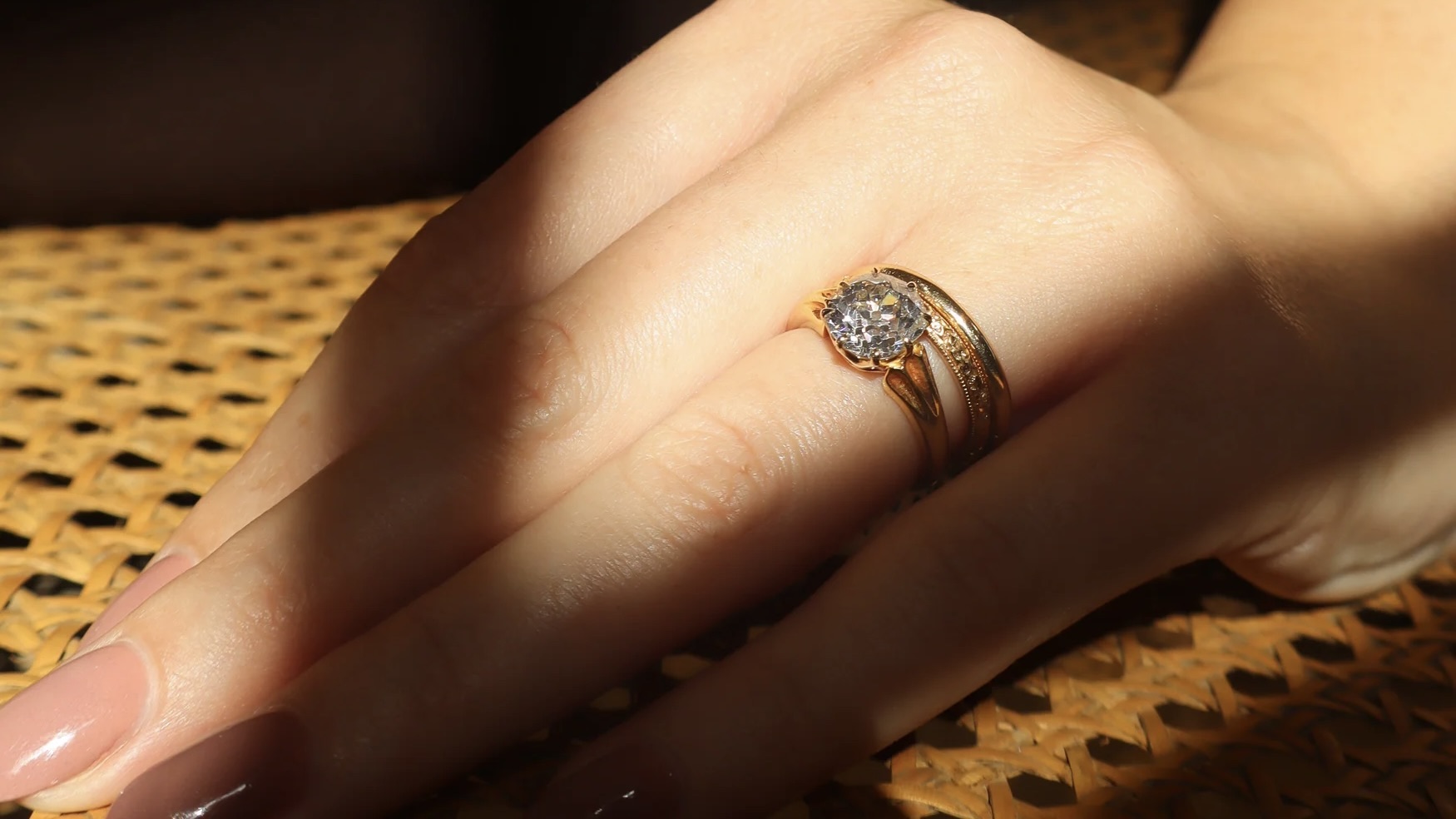
Andria Barbone Lorena Ring, featuring a 2-carat old mine-cut diamond in an antique-inspired prong setting, $28,300, andriabarbone.com
The old mine cut diamond stands out among diamond cuts for its unique combination of charm, romance, and historical significance. These distinctive gems bridge history and present times while enjoying a substantial resurgence because of their exceptional uniqueness. This complete guide examines what makes old mine cut diamonds special, how they evolved, and why more people are seeking them out today.
Meet the Expert

- Grant Mobley is the Jewelry & Watch Editor of Only Natural Diamonds.
- He is a GIA Diamonds Graduate.
- He has over 17 years of jewelry industry experience, starting with growing up in his family’s retail jewelry stores.
What is an Old Mine Cut Diamond?
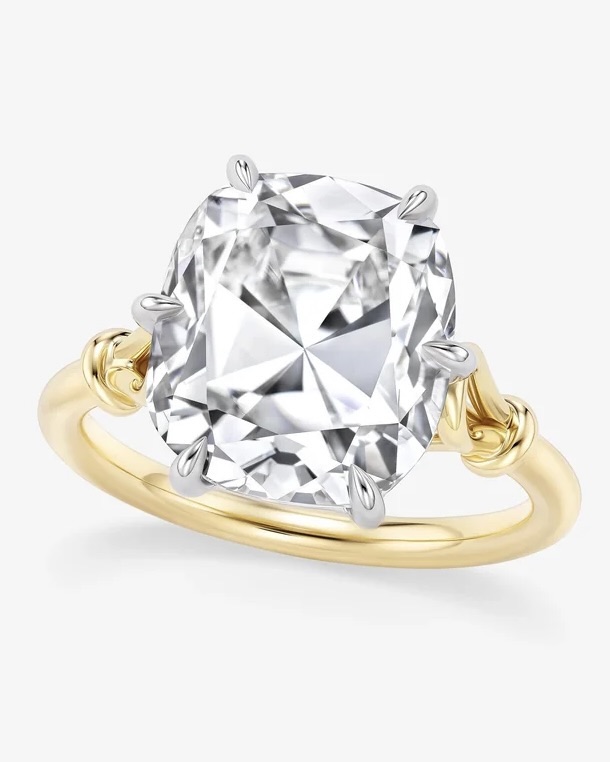
The old mine cut diamond represents one of the original brilliant cut styles. They feature a square or cushion-shaped design with a tall crown, small table, large culet, and broad facets that serve to intensify sparkle under candlelight. Unlike modern cuts, which are precision-crafted thanks to computer mapping and better cutting tools, old mine cuts were shaped entirely by the hands of a master. Every facet was placed based on the cutter’s eye, not a mathematical formula, resulting in subtle asymmetries and deeply personal character.
Although these diamonds share a 58-facet count with modern round brilliants, they exhibit unique arrangements and proportions that lead to a different appearance. The top of old mine cut diamonds show greater dome curvature with softer corners, along with a noticeable bottom facet known as the culet. The unique characteristics of old mine cuts separate them visually from other diamonds while also producing the romantic glow cherished by collectors and vintage jewelry enthusiasts.
The History of the Old Mine Cut Diamond: 1700s to Today
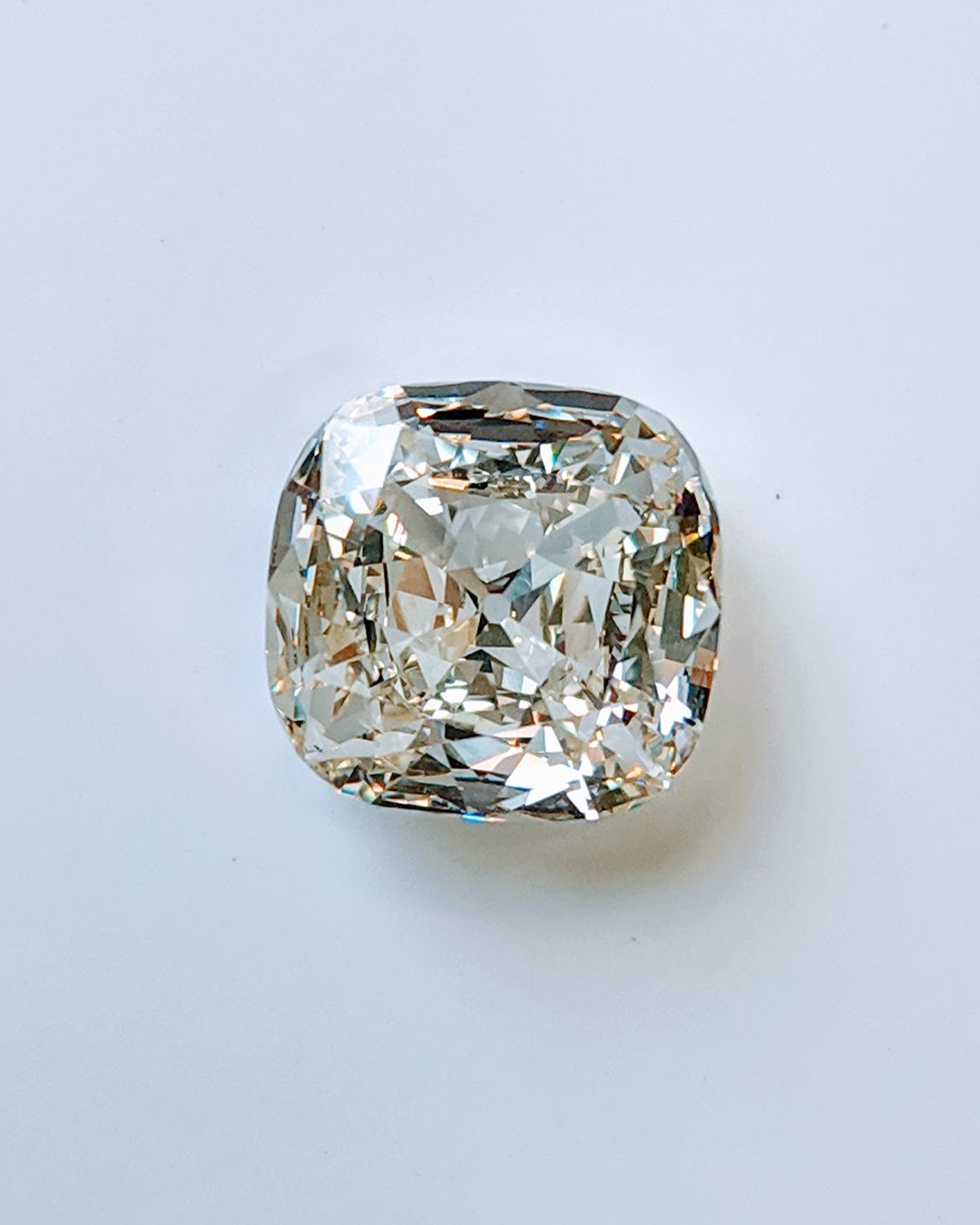
The old mine cut style became popular during the early 18th century after miners discovered diamonds in Brazil during the 1720s. Diamonds originally came from India until Brazilian mines discovered a more abundant supply that allowed cutters more freedom to experiment. Cutters moved away from the strict octahedral shape used to preserve as much carat weight as possible, instead rounding corners and adding more facets to enhance fire and sparkle.
The term “old mine cut” transformed through history. Early on, the term described diamonds mined from India and Brazil’s “old mines,” which differed from the diamond sources discovered in South Africa during the later parts of the 19th century. The name of the old mine slowly transformed to describe how diamonds were shaped rather than their geographical origins.
From 1714 until 1901, throughout the Georgian and Victorian periods, the old mine cut became the most prevalent diamond cutting style. Antique rings and brooches from the Georgian and Victorian periods typically feature this cut. All diamonds were distinct as artisans shaped each piece based on the rough crystal‘s natural, one-of-a-kind form.
From Old Mine Cut Diamonds to the Old European Cut
Diamond cutting experienced a significant transformation due to technological advances in the late 19th century. Diamond cutters gained the ability to shape stones with much greater precision following the introduction of the bruting machine in 1874. This led to the development of the old European cut, a new diamond cut with a rounder shape and smaller culet that expanded the table size and achieved more balanced proportions.
The old European cut was replaced by the modern round brilliant cut at the start of the 20th century. As technology continued to advance and knowledge of light performance expanded, cutters gained the ability to produce diamonds with enhanced brilliance and increased fire and scintillation. The modern cut standard quickly became popular, which led to numerous old mine cuts and old European cuts being transformed to fit the new ideal. The search for natural diamond perfection caused many original old mine cut diamonds to be recut, contributing to their rarity today.
The Return of Old Mine Cut Diamonds
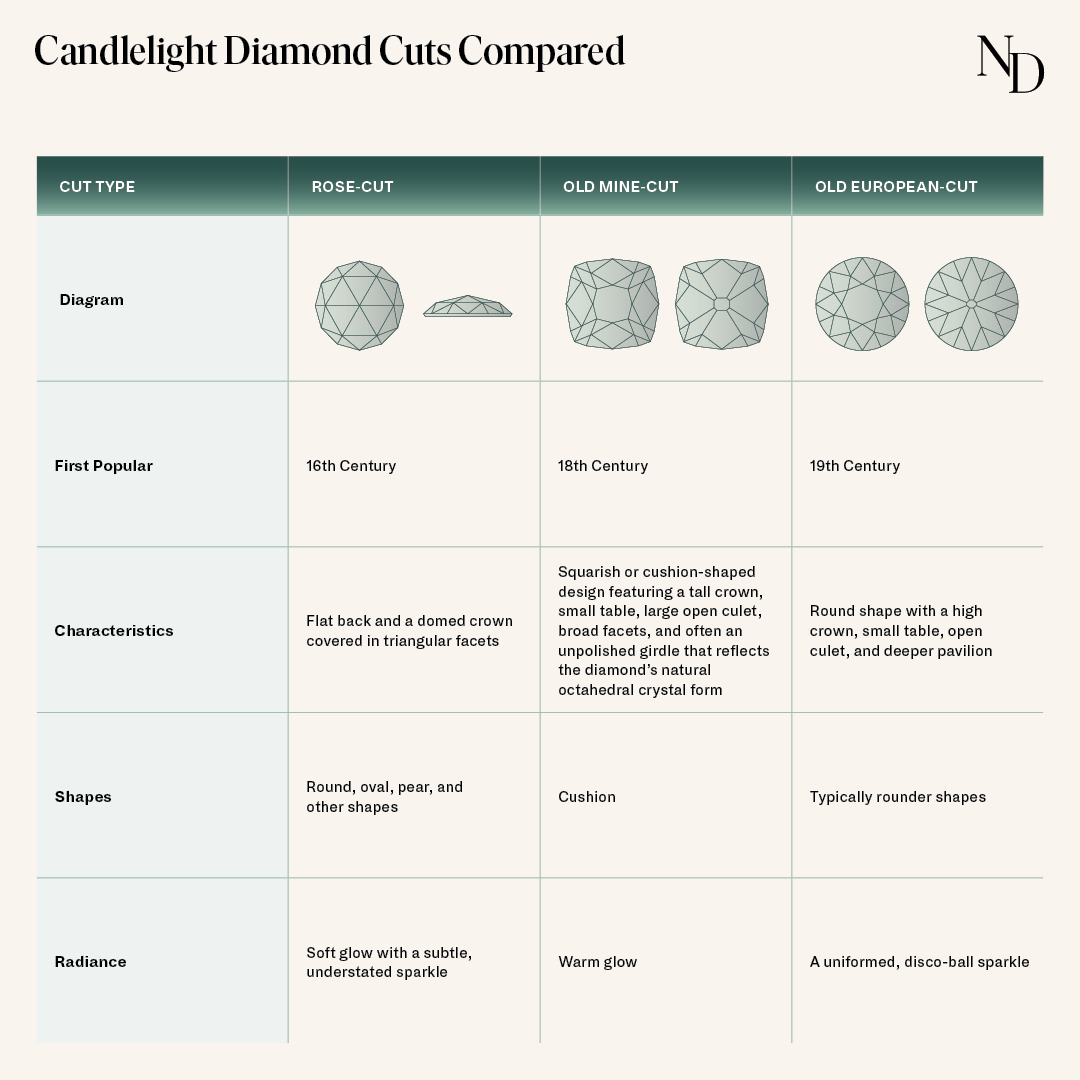
While modern cuts dominate today’s diamond market, there has been a growing appreciation for antique and vintage styles. People are rediscovering the beauty and individuality of old mine cuts. Their imperfections aren’t seen as flaws but rather as proof of craftsmanship and authenticity. No two are exactly alike, and that’s precisely what makes them so desirable.
Unique engagement ring seekers and collectors are becoming increasingly attracted to these heirloom-quality stones. They offer a softer, more romantic aesthetic than modern brilliants, with broader flashes of light and a deeper, more mysterious glow. Old mine cut diamonds provide a more intimate connection to the past when gemstones were valued for their rarity and character over brilliance.
Modern Cushion Cuts and Old Mine Cut Diamond Reproductions
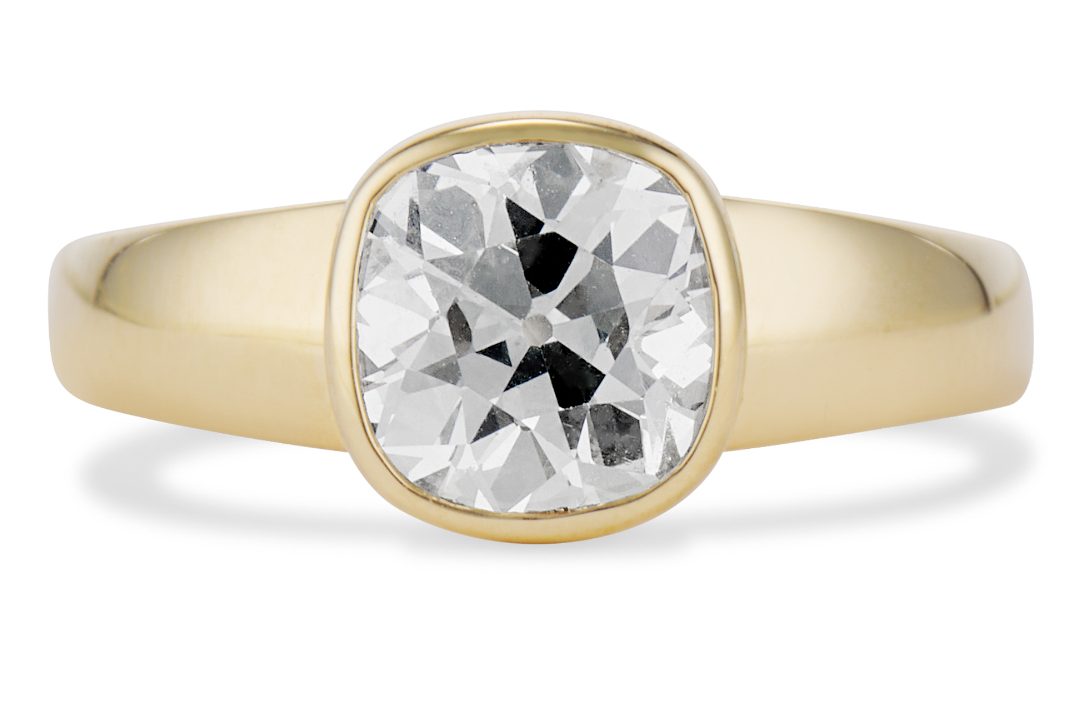

Modern cutters are returning to traditional techniques to recreate old mine cuts in response to increasing demand. These diamonds are not antiques, yet they maintain the original style and proportions, providing a desirable alternative for those seeking an old mine cut appearance without the hunt for an antique cut stone.
And for those who love the shape but still crave maximum brilliance, the modern cushion cut offers the best of both worlds. This diamond cut keeps a vintage mine cut’s soft pillow shape but features improved proportions and facet placements to boost light reflection. It’s a great choice for those who appreciate vintage design but want a stone cut to modern standards.
How to Find an Old Mine Cut Diamond
To find an authentic old mine cut diamond, consult a jeweler specializing in antique and vintage jewelry. Specialists in antique diamonds will teach you what features to seek and present you with beautiful examples. Some may even have loose stones that you can use to set into a custom ring or pendant for a modern jewelry design using an antique cut diamond.
Old mine cut diamonds are also available at estate sales, antique shops, and auctions, but require expert evaluation to identify them properly. You should expect variations in color and clarity since these diamonds were cut before standardized grading systems existed. But remember, that’s part of their charm.
Why Old Mine Cut Diamonds Are a Romantic and Timeless Choice

An old mine cut diamond holds significant value beyond its mere beauty. An old mine cut diamond is a wearable historical artifact linking you to a bygone era’s traditional craftsmanship. Each diamond holds a unique story that cannot be replicated by modern stones, whether discovered in antique shops or inherited across generations.
With their growing popularity and limited supply, old mine cut diamonds are a distinctive choice and an investment in timeless elegance. They remind us that true beauty isn’t always perfect—sometimes, it’s the imperfections that make something truly unforgettable.
Shop Old Mine Cut Diamond Pieces
Get inspired by standout styles from some of our favorite designers.



